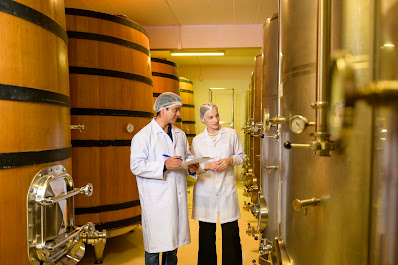Bacterial Enzymes: Powering the Future of Biofuels
In the global quest for sustainable energy, biofuels have emerged as a promising alternative to fossil fuels. Among the many advancements in biofuel production, bacterial enzymes have played a pivotal role in enhancing efficiency, reducing costs, and minimising environmental impact. These microscopic catalysts are revolutionising the way biofuels are produced, paving the way for a greener future.
Breaking Down Biomass with Precision
Biofuels are primarily derived from plant-based biomass, including agricultural waste, wood residues, and energy crops. However, breaking down these complex materials into fermentable sugars is a challenging process. This is where bacterial enzymes come in. Enzymes such as cellulases, hemicellulases, and ligninases efficiently degrade tough plant structures, converting cellulose and hemicellulose into simple sugars that can be fermented into bioethanol and other biofuels.
The Role of Bacterial Enzymes in Advanced Biofuels
First-generation biofuels, such as ethanol from corn and sugarcane, have limitations in terms of sustainability and competition with food supplies. Advanced biofuels, including cellulosic ethanol and biodiesel, rely on bacterial enzymes to process non-food biomass efficiently. Laccases and peroxidases play a crucial role in breaking down lignin, a major barrier to accessing fermentable sugars, while lipases aid in biodiesel production by catalysing the transesterification of oils into fatty acid methyl esters (FAME).
Enhancing Efficiency with Genetic Engineering
Modern biotechnology has further optimised bacterial enzyme performance. Genetic engineering allows scientists to enhance enzyme stability, activity, and specificity, enabling them to function under extreme conditions such as high temperatures and varying pH levels. Engineered strains of Bacillus and Clostridium species have been developed to produce enzymes with improved catalytic efficiency, significantly boosting biofuel yields.
A Sustainable Future with Enzyme Technology
The adoption of bacterial enzymes in biofuel production not only increases efficiency but also reduces the environmental footprint of traditional fuel extraction methods. These biological catalysts minimise the need for harsh chemicals and energy-intensive processes, making biofuel production more eco-friendly and cost-effective. As research continues to push the boundaries of enzyme technology, the potential for even more sustainable and scalable biofuel solutions remains immense.
Bacterial enzymes are at the forefront of the renewable energy revolution, turning waste into valuable fuel while reducing our dependence on fossil fuels. With continued advancements in enzyme engineering and bioprocessing, the future of biofuels looks brighter than ever.
Source - https://www.biolaxienzymes.com/bacterial-enzymes-in-the-production-of-biofuels/




Comments
Post a Comment